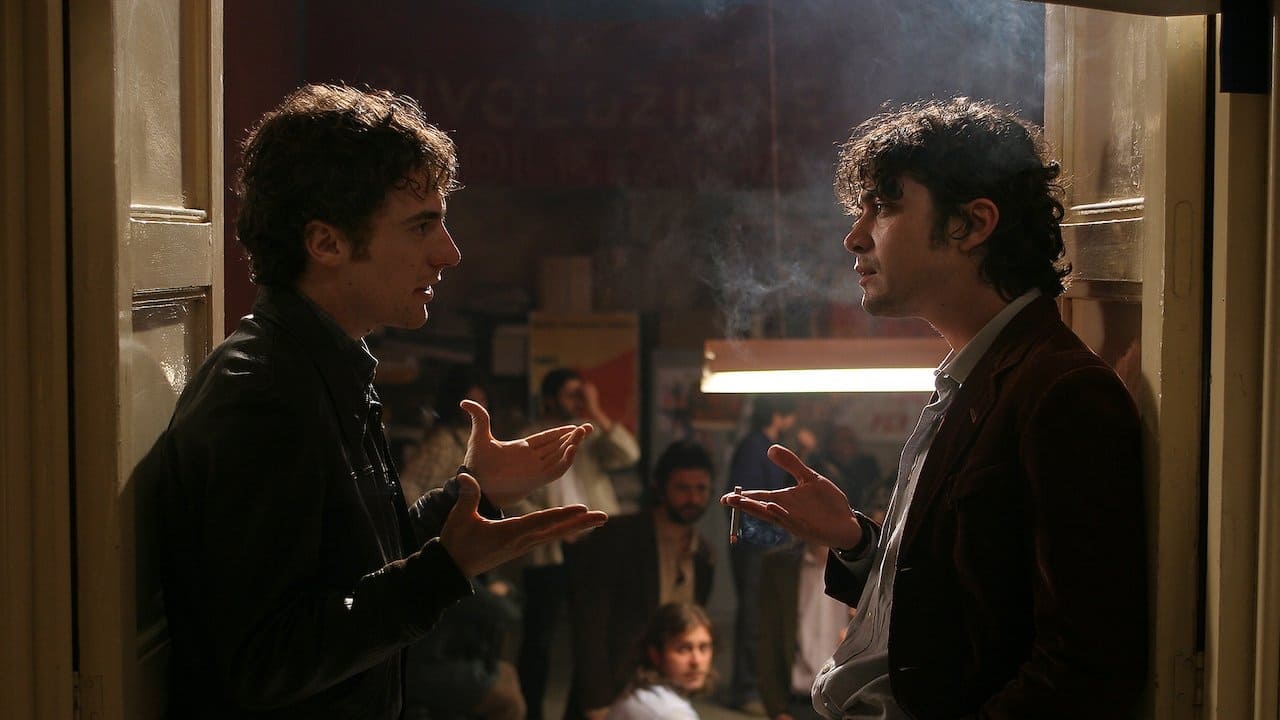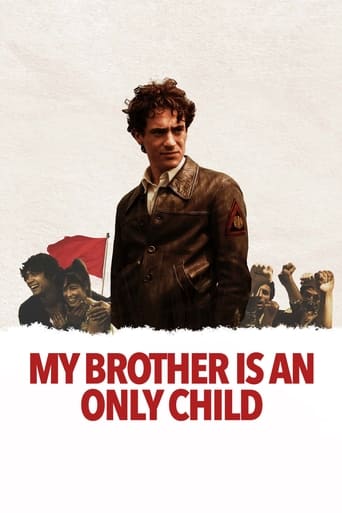

Lack of good storyline.
... View MoreAwesome Movie
... View MoreIf you're interested in the topic at hand, you should just watch it and judge yourself because the reviews have gone very biased by people that didn't even watch it and just hate (or love) the creator. I liked it, it was well written, narrated, and directed and it was about a topic that interests me.
... View MoreBlistering performances.
... View MoreThe film follows two Italian brothers growing up in the 1960s and 70s. They both love the same girl but have very different political beliefs; Accio is a fascist, Manrico is a communist. Predictably the main themes are politics, romance and family. We see the brothers battling over their ideologies, relationships and their parents' attempts to guide them through their emergence into adulthood.A very interesting story idea but it goes nowhere. It lacks depth, insights and fails to be believable. The film tells the story in a contrived, clichéd, predictable way and is ultimately cynical in the roles the characters are given and how they are expected to carry them out.
... View MoreI saw this last month at the Palm Springs International Film Festival. This is a good offering from Italy and director/writer Daniele Luchetti who co-wrote the screenplay with Sandro Petraglia and Stefano Rulli based on the semi-autobiographical novel Il Fasciocmunista by Antonio Pennacchi. The story takes us from 1962 to around 1977 and as it begins we follow Accio Benano (Vittorrio Emanuele Popizo) who is a scrappy little mischief-maker who loves to fight and ends up in a seminary to study for the priesthood. This falls through and he returns home to his mother and father and older sister and brother. They live in a small town that was created by WWII era fascist dictator Benito Mussolini. The family home and most others in town are falling apart and the community awaits long promised new government housing from the current series of governments but the housing that is already constructed sits unoccupied. The older Accio (Elio Germano) has grown into an even more mischievous and rebellious young man and through his friendship with Mario (Luca Zingaretti), a Mussalini sympathizer who longs for the old days he joins the local Fascist party. This is in direct contrast to his family who are communist sympathizers and Accio older, charismatic and handsome brother Manrico (Riccardo Scamarcio) has joined the local communist party and is involved in organizing workers at the factory where he works. Accio has an eye for Manrico's girlfriend Francesca (Diane Fleri) and Mario's wife Bella (Anna Bonaiuto) has a Mrs. Robinson kind of attraction to Accio. This is a drama with plenty of smart comedy. An excellent cast and director Luchetti get the most out of them. It's a simple story that never bogs down and keeps moving with good dialog interesting situations. I would give this an 8.0 out of 10 and recommend it.
... View MoreSaw this as part of the London Film Festival, and was expecting a belter. And how disappointed was I? VERY.What could have been a very interesting look at how different political views can co-exist within the family instead descends into a series of disjointed rubbish with no real purpose and no explanation.The central characters were introduced, but without much substance, and there were holes in the plot that you could have driven a double decker bus through. About 20 minutes too long, it actually had my husband snoring after an hour, that can't be good in the entertainment stakes, can it? With a denouement that comes out of nowhere, this left me feeling very disappointed and unsatisfied. All in all, a good idea, totally wasted.
... View MoreSimply put, a very good movie. As somebody who lived through part of those years, I really appreciated the way it managed to recreate their social and political 'atmosphere'. Yes, it is not the first flick to deal with those topics, but hey, how many movies about WW2 have we seen so far? Was Flags of our Fathers less good for this reason? I particularly liked Accio's description of personal relationships between the brothers, as well as the intriguing political evolution. I thinks that Scamarcio's presence could also take a younger audience to this movie, something which would be very good as some stories are just worth remembering (I can't stand the "let's forget about it and move on towards modernity" approach; awfully dangerous for a civilized society). Back to the cinema factor, all actors fit well in their roles, although the Accio's sister was kind of lame at times. Zingaretti's performance as a hardcore fascist, on the other hand, was made even more intriguing by his close association with the ever-different character of Commissario Montalbano in the popular TV transpositions of Camilleri's novels (which by the way I strongly recommend to anyone interested in Italian written fiction).
... View More